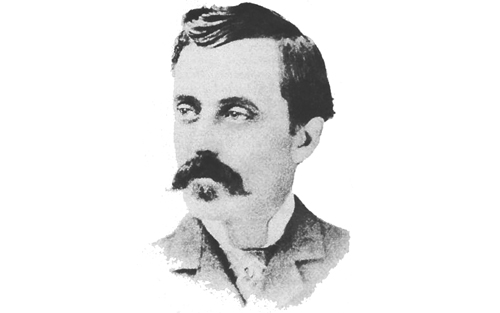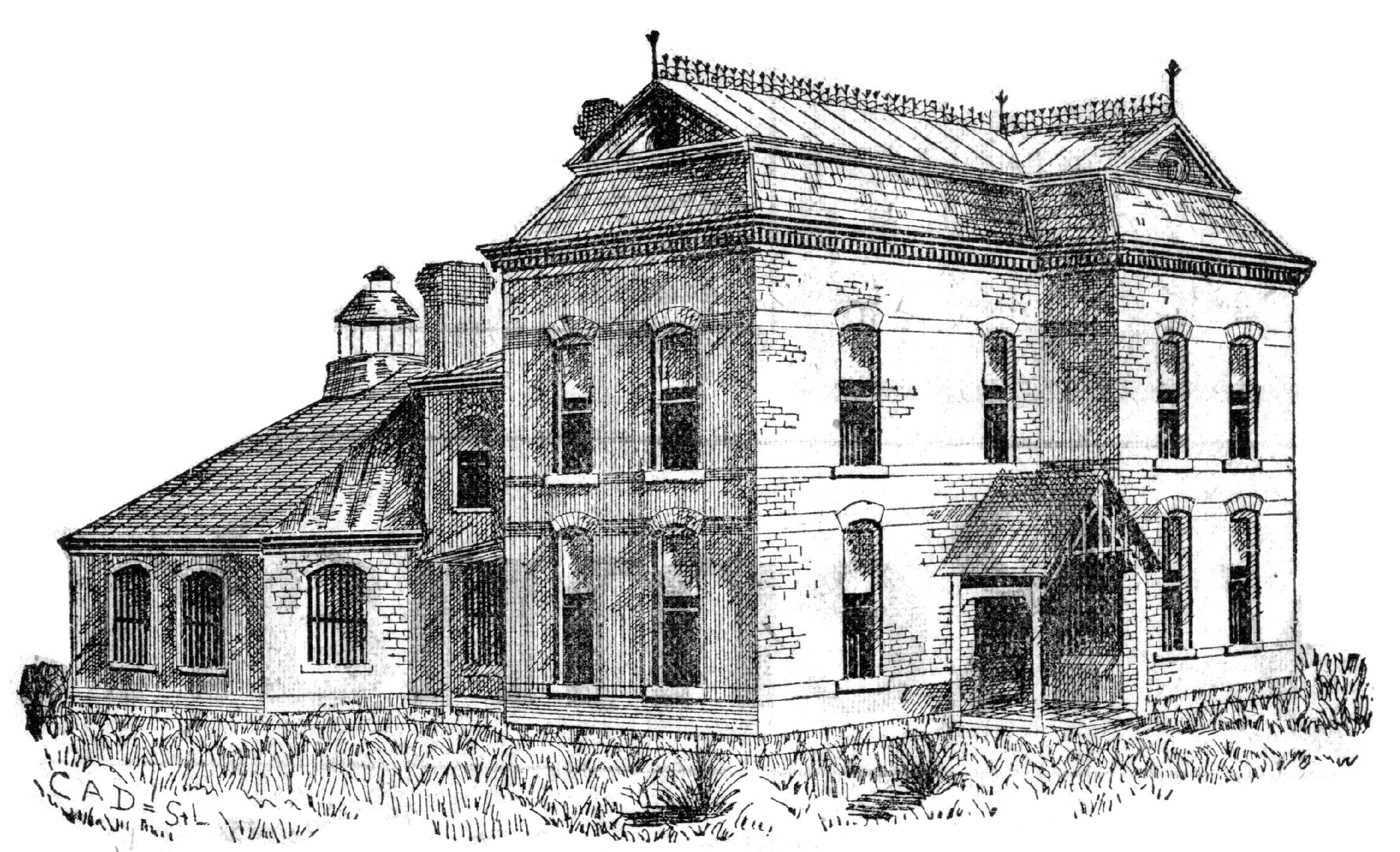James Gang member Dick Liddil, if his testimony is true, made a very damaging case against defendant Frank James on a Saturday morning during the 1883 trial in Gallatin. Objection to his testimony was immediately raised by the defense on the grounds that Liddil had been convicted and sent to the penitentiary for felony (for horse stealing, with disfranchisement a consequence), and that Liddil had never been granted a pardon. But Judge Goodman noted the exception and allowed the witness to proceed.

James Gang member Dick Liddil’s testimony during the 1883 trial of Frank James made a very damaging case against defendant Frank James. Defense attorneys tried to block Liddil from taking the witness stand on the grounds that Liddil had been convicted and sent to the penitentiary for felony (for horse stealing, with disfranchisement a consequence), and that Liddil had never been granted a pardon. But Judge Goodman noted the exception and allow Liddil to testify.
Interest in what he had to say increased as he provided an extensive and detailed history of the James gang activities leading up to the train robbery at Winston. The following is a portion of Liddil’s testimony that was published in the Jamesport Gazette on Thursday, Aug. 30, 1883:
“…a week later, we came to this place to look out a ground to rob a train; started this time about dark and rode till after midnight, and camped out; were to meet Wood Hite at Gallatin; stopped all night with a Dutchman; supposed this house was about ten miles from Gallatin; Jesse James wore whiskers all over his face; Frank had burnsides and mustache; came from dutchman’s to within a mile and a half of Gallatin, in woods to meet Wood Hite; Jesse got sick so we had to give up the trip and start back; we stayed all night at a man’s named Wolfinbarger; Frank, Jesse, Wood and myself staid there and Clarence staid at some other house; Jesse got man to take him to Hamilton to buy a buggy; after Jess left the rest of us started for home; Frank and I went to Ray county to widow Bolton’s; staid there about a week, then went to Mrs. Samuel’s; Jesse wrote for us.
“About a week or ten days later the same party started on another raid; assisted in robbing train at Winston the last trip; came in northeast of town in a skirt of timber and staid until sun up next morning, then scattered; Frank and Clarence went in one direction and Wood, Jesse and I together; met Frank and Clarence again and stayed in patch of timber near a negro’s cabin; stayed one and one-half miles south of Gallatin; next morning we separated, I going by myself and the others in couples; had horse shod in Gallatin late that evening; in town just long enough to get horse shod and a pair of fenders for my horse’s legs; know the shop; have seen it since I came here; never been here since till this trip.
Met near Winston next morning; got dinner at a little frame house on right hand side of road; met boys in skirt of timber about a mile this side of Winston, near where road crosses track; waited till dark and then went to Winston; Wood and myself together and Jesse, Frank and Clarence together; Wood and I went to saloon to get some lemonade and the others went to the depot; myself and Clarence Hite were to capture the engine and Wood, Jesse and Frank to go in the express car; we got on tender just as train started; we all had pistols; just as we got out of Winston heard several shots fired; went over tender to engine; when train stopped we were ordered to make them move on; bell rang, engineer threw open throttle and escaped; Frank came through and shut her off; engineer and fireman ran around and got on the cow catcher; we jumped off while train was running; Clarence and Frank jumped off first; Jesse was still in the express car; got $700 or $800 in packages and greenbacks; Frank and Wood ran around to side door and Frank jerked messenger out on Wood; in conversation said they thought they had killed two men; Jess said he knew he had killed one and Frank thought he had; in getting away Clarence cut halter strap of horse; we went to Crooked River by Jesse James; I got $130; we separated, Wood and myself went to Ford’s near Richmond, and the others went down near Mrs. Samuels’; Charley Ford came after us and six of us went to Kansas City, crossing on the bridge; Jesse and Charley got out on Independence Avenue, Clarence Hite and I stayed in wagon, and Wood Hite and Frank James got out of wagon between Independence and Kansas City about four miles from Ralston’s; Clarence and I went to McCran’s where we left wagon and horses; saw Frank next evening near Independence, where C&A road crosses Missouri Pacific; next saw him about October in Ray county at widow Bolton’s; Frank, Charley Ford and Clarence Hite were going to Kentucky; they missed the train and went by wagon to R&L Junction; never saw him again until this time.”
This closed the direct examination, and the cross examination was postponed until Monday.
Governor Crittenden was then called and testified that Dick Liddil told him Frank James said to Jesse, “He would not have gone if he had known there was going to be any killing.” After the governor’s testimony, court adjourned until Monday.
The following comment was published in the Jamesport Gazette:
“People attending the trial are divided in sentiment on the effect of Dick Liddil’s cross examination. There can be no question that if Liddil’s statements are true they make a very damaging case for the defendant. The cross-examination was sharp and tedious an in some points different from the direct examination. However, the witness maintained that the Winston robbery was planned and executed by himself, Frank and Jesse James, Wood and Clarence Hite. The defense has laid the foundation broad and deep for his impeachment by five good reputable witnesses. Among these is General Joe Shelby.
“From the opening of the great trial it has been observed and commented on that the prisoner does not consult with his attorneys, from some persons argue that he knows the statement of Liddil is a base fabrication. However, That is a question for the consideration of the jury. Be that as it may it is claimed by the defense that they will not only prove an alibi, but will go still further an show that the fifth man in the Winston robbery was not Frank James, but Jim Cummings.”

One of the scenes painted by Thomas Hart Benton (1889-1975) featured in the Missouri State Capitol at Jefferson City features outlaw Jesse James in a mythical train/bank robbery. Benton’s work adorns the House Lounge on the third floor of the Capitol. The murals were commissioned by the legislature in early 1935 for $16,000 and completed in December 1936.

